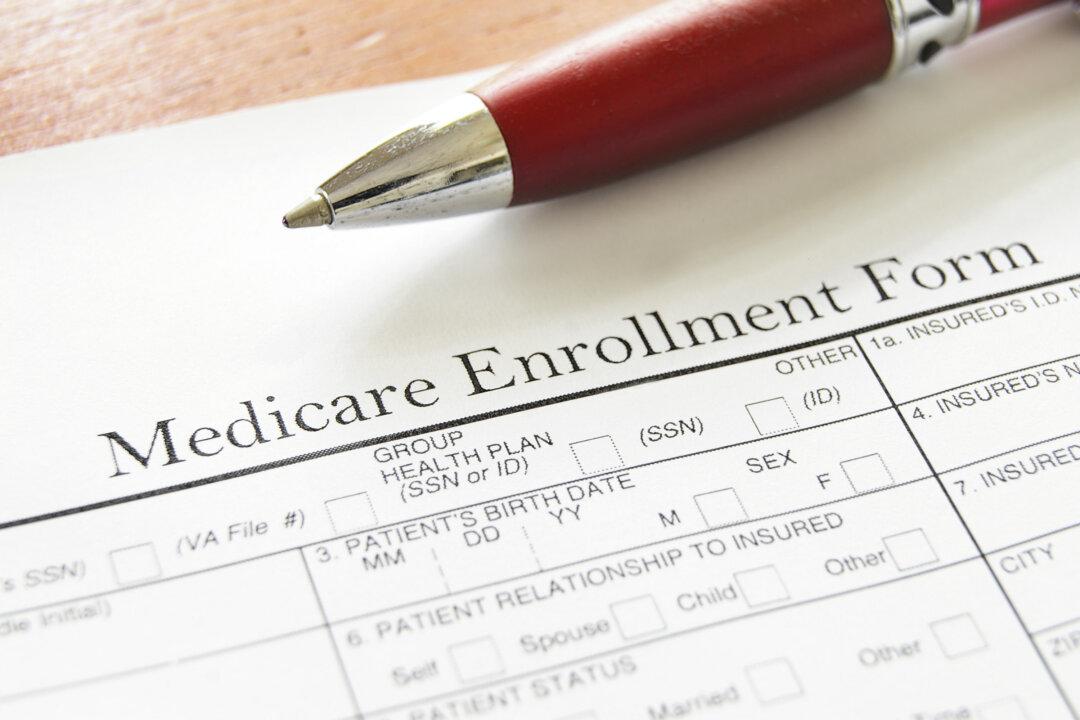Welcome to The Epoch Times Health Brief for Sunday, October 27th, 2024.
I’m Bill Thomas, we have several important stories to share with you right now, and here’s what’s going on.
Approximately two million Americans will be losing Medicare Advantage plans in 2025, a study that followed people for 52 years points out that eating eggs every day is linked to better brain health for women, and we have tips on how to boost your immunity in order to fight the ever-growing threat of superbugs, or bacteria that have become resistant to antibiotics.
Also, your old mattress could be the cause of your aches, pains, and back problems, and we’ll tell you about a simple emergency guide that could help you weather any storm, including hurricanes, fires, floods, and even longterm power outages.
Key Updates for Medicare Enrollees: What You Need to Know for 2025
People on Medicare Advantage, a Medicare plan offered by private insurance companies rather than the government, are in for a surprise because of new rules related to the Inflation Reduction Act.One of the most notable changes is the new cap regarding out-of-pocket expenses on prescription drugs, and Medicare is cutting it by almost half, down to $2,000 a year beginning in 2025. While the new limit is a major change, it does not apply to all medications, and you should check with your insurance representative to find out how the cap applies to you.
And one more thing you should know: they’re rolling out new payment plans for prescriptions. This new option allows seniors to pay for their medications in monthly installments rather than all at once. This way people have more flexibility, especially since those Part D deductibles are creeping up to a total of almost $600 per year beginning next year.
It’s also important to point out that some plans might scale back on benefits. Certain coverage such as dental and vision might be on the chopping block, which means stay on high alert and be prepared for any changes.
If your Medicare Advantage plan is getting the boot, you'll receive what’s called an “Annual Notice of Change” letter which basically says that you can figure out your next move during the open enrollment period, which starts January 1, 2025 and ends on March 31.
Just a reminder that while the average premium for Medicare Advantage is holding steady at about $17 a month, there’s more to think about than just the price of the premium. It’s critical to consider other factors like deductibles, plan coverage, copays, and location of providers, all of which might change.
Your Mattress May Be the Cause of Unexplained Symptoms—Here’s Why
Turns out if you’re waking up feeling like you’ve gone a dozen rounds with a heavyweight champion, it might be a telling sign that your old mattress has reached the end of its useful life.Bert Jacobson, professor at Oklahoma State University who’s been studying mattresses for two decades, says tons of people report massive improvements in their pain and fatigue symptoms after getting a new mattress, and he says the average mattress taps out after around 10 years.
Physical pain might not be the only thing that disappears. A recent study shows that middle-aged folks who made the switch to something called a medium-firm grid mattress experienced improvements in their mood and energy levels.
Jacobson and his team recently played mattress detectives, focusing on the springs. When they put the springs to the test, the worn-out ones folded like a cheap suit compared to the new ones. The takeaway is that your mattress might look okay, but it could be sabotaging your sleep posture and therefore your sleep quality.
But it’s not just about comfort and support; old mattresses can be a perfect host for dust mites, which feed on our dead skin cells, and that could trigger all sorts of allergic reactions and can even contribute to the development of eczema.
Also, keep in mind that your old mattress can become a breeding ground for bacteria and mold. This can lead to a variety of problems like headaches and fatigue, especially for those who have weak immune systems.
So, here’s how we keep our mattresses in good shape. It’s important to rotate them every few months to make sure they wear evenly, and break out the vacuum, because research shows that over a period of eight weeks, daily vacuuming can remove up to 78 percent of the dust mites living in your mattress.
52-Year Study Links Eating Eggs to Better Memory in Women
Eating eggs just might be the secret weapon in the fight against cognitive decline—at least it might be for women. You should know that researchers tracked around 900 people for more than half a century and they made an amazing discovery: women who ate eggs more than five times a week showed significantly better performance in language and memory.
In case you are wondering if the findings apply to men, the answer is no. Though the study did include about 400 adult males, eggs were not found to be beneficial for men, at least not when it comes to optimal brain function.
Now, it’s true that eggs have gotten a bad rap over the years for their cholesterol content, but they are also packed with protein, antioxidants, and important nutrients, all of which support brain health.
If you still have reservations about cholesterol, Stephanie Schiff, a registered dietician nutritionist in New York, says that cholesterol found in foods does not usually affect the type of cholesterol found in your blood, which means eggs will not necessarily increase the risk of heart disease.
Here’s the thing, though—everybody is different, and this is why some people might need to watch their egg intake more carefully than others. So consider your personal health history and talk to your doctor about how many eggs you should eat each day.
One final note, every study has its limitations. The researchers for this particular experiment relied on people self-reporting their egg consumption, so the results might not be entirely accurate.
Home Prep Guide: What You Need to Last 2 Weeks in an Emergency
It is not about if a disaster will strike, but when and where. Now, before you go online and buy one of those survival kits, there are some things you need to think about.Creek Stewart, a survival expert, has some advice about treating emergency preparedness like insurance—it might seem like an inconvenience now, but when you need it, you’ll be glad you have it.
So, let’s break this down into component parts. There are three primary things you need to focus on: how to keep your family connected, evacuation plans, and sheltering in place.
First up is family communication. Stewart says families should have a game plan for getting in touch—you know, meeting spots and backup ways to reach each other when cell phones aren’t working. Having someone outside your immediate area as a contact can save a lot of stress as well, and either memorize or keep a list of the critical phone numbers you may need.
Now, about that evacuation plan—it’s wise to learn the local evacuation routes well in advance, so you don’t waste any time trying to get to a safe location. Also, make sure you have a fully-stocked, ready-to-go emergency bag packed with the essentials you need for at least 72 hours: things like water, food, important papers, and any medications you might need.
Then there’s the shelter-in-place plan, which is important when staying at home is the safest option. Stewart recommends stocking up on two weeks’ worth of food like canned goods that have a long shelf life, clean water, and ways to cook and stay warm when the power’s out. Nothing fancy—just the basics done right.
Last and of course very important, remember that preparedness is not a one-time deal. It’s an ongoing process. Keep those family emergency drills fresh, rotate your supplies—because nobody wants five-year-old protein bars—and stay in the loop with regard to which disasters your local area is prone to.
The bottom line is that whether it’s hurricanes, fires, floods, earthquakes, power outages, or any emergency, making a plan now will help prepare you for whatever natural disaster comes your way.
How to Become Resilient Amid the Rise of Superbugs
Doctors have been saying for years that we are heading into a serious health crisis with superbugs, and this is really a big deal. Experts warn that millions could die in the next couple of decades due to something referred to as antibiotic-resistant infections.However, the positive news is that you can ramp up your immunity to help tackle these potentially deadly threats head-on.
First off, let’s talk about the basics of what superbugs are. Until a few years ago, antibiotics were the knights in shining armor, saving lives from serious bacterial infections. But as bacteria have evolved, some have become resistant to medications, creating superbugs that are nearly untreatable.
To ward off these superbugs, we can begin by boosting our immune system. A healthy diet plays an enormous role in total body health, and nutritionists are all about colorful fruits and vegetables. Whole grains, lean proteins, and plenty of water are also key to prime health, providing energy and supporting immune functions.
Don’t forget about healthy fats from sources like fish, nuts, and seeds which combat inflammation and keep your body functioning well.
Also, keep in mind that other lifestyle factors such as exercise and quality sleep are powerful tools in the fight against bacteria. You should know that chronic stress can affect your immune system, so it’s important to find time for relaxation and self-care.
Finally, you may want to talk to your doctor about supplements. Things like zinc, probiotics, elderberries, and vitamins can substantially ramp up your level of immunity.
Whichever health method you choose, remember that every little bit helps in the fight against superbugs. Staying proactive about your health is the best way to survive and thrive in a world full of constantly evolving medical concerns.
And now, it looks like our time is just about up for today, so we’re gonna call it a wrap for this edition of the Epoch Times Health Brief.
And don’t forget the Health Brief Motto: We’re portable, affordable, and always on-demand.
And finally, as we do each and every week on this program, we wrap everything up with a very notable quote.
It was legendary actor Bill Murray who said: “The best way to teach your kids about taxes is by eating 30 percent of their ice cream.”
One more thing before we go—the health tip of the day: Don’t brush your teeth immediately after eating. Wait at least 30 minutes to avoid damaging enamel.
For all of us here at the Epoch Times Health Brief, I’m Bill Thomas.
The Epoch Times Health Brief program was written today by Hristina Byrnes.
Thank you for making us your one-stop source for a concise, accurate, and unbiased synopsis of many of the health stories you need to know about.
Enjoy the remainder of your day, please stay healthy, and we'll see you right back here next time for another edition of the Epoch Times Health Brief.
For now, let’s all continue to watch out for one another and have an absolutely superb day today. Bye for now.





